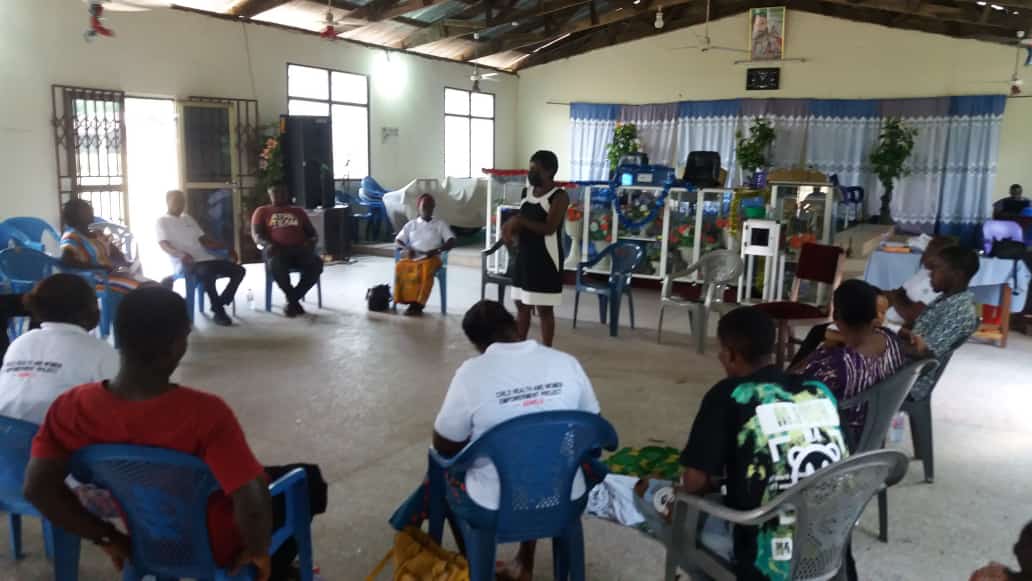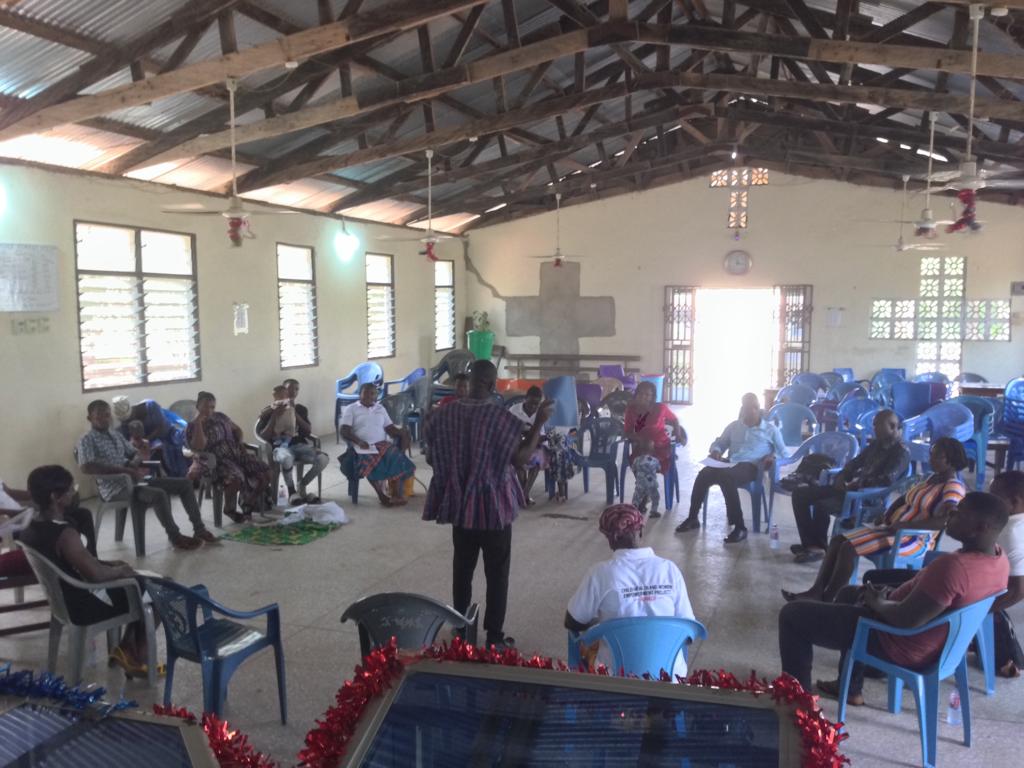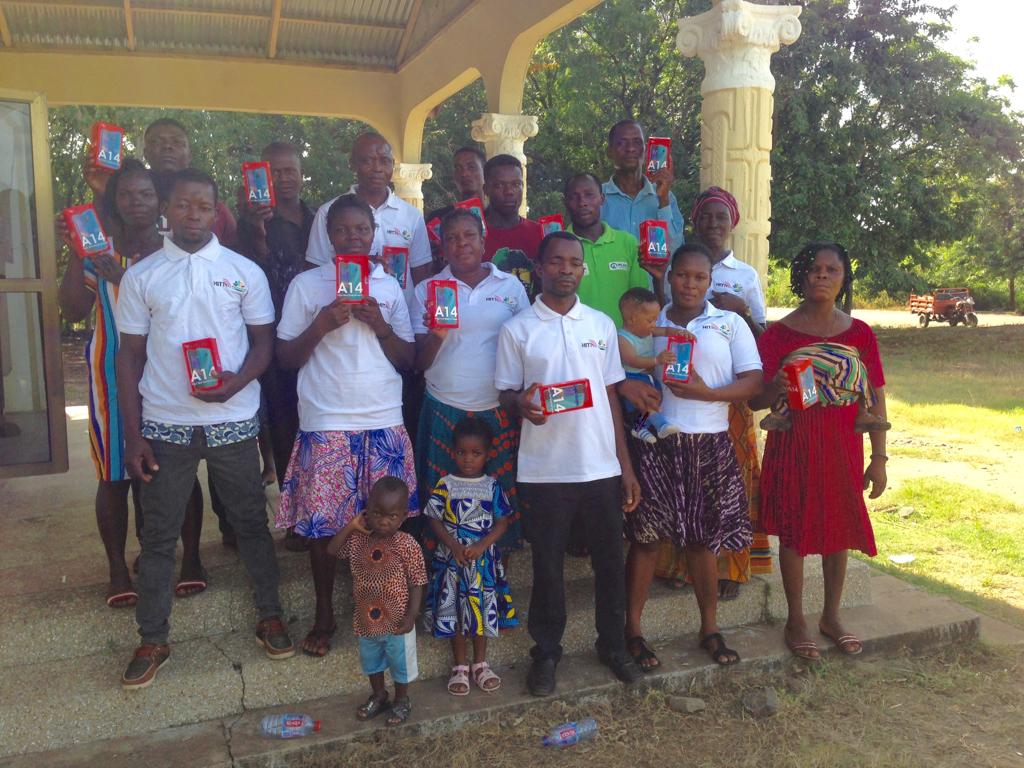On November 24th and 25th, the team of GrowYourDream Fundation (GYDF) conducted a two-day refresher training in Adaklu for the leaders of 20 community groups established in the context of a one-year project funded from sources of the German Ministry for Economic Cooperation and Development (BMZ) and HITA, a German NGO operating in the Volta Region. The focus of the community groups is on empowering women to take a stronger role in decision-making in their families and communities, on encouraging men to reflect on the negative impacts of rigid gender roles and how these can be overcome, and on educating adolescents and their parents in matters of sexual and reproductive health.
Recent months have seen a large number of group meetings in each of the communities, plus meetings of the Project Group and consultative meetings of the GYDF team with key stakeholders in health and community development. The purpose of the refresher training was now to review the progress made, collect feedback from the group leaders and discuss individual experiences, with a view at ensuring that the achievements will be sustained and build upon after the end of the project duration, i.e. end of 2021.

The training was opened with a short prayer from Mr. Fiah Daniel, a Daddies Club leader from Amudezudeve. This was followed by an opening speech given by Madam Antoinette, the public health nurse at Adaklu District Health Directorate. Madam Antoinette called upon the participants to continue their valuable training activities in their communities in spite of the Covid-19 pandemic. She stressed that GYDF’s activities compliment Ghana Health Service’s outreach activities across the Adaklu District very well, particularly with respect to communities that are remote and hard to reach through the road network. Madam Antoinette underscored the need for women empowerment as a means to achieve social development and improvement of health outcomes for all Ghanaians. She added that women empowerment activities must involve not only women but also men to achieve the intended results. In a final remark, Madam Antoinette asked the participants to lead the crusade in their communities to help fight the spread of Covid-19, which must not be allowed to endanger the progress made in term of health, social and economic growth across the globe, but especially in the developing world. Madam Antoinette concluded by calling on GYFD to extend its community engagement programme to other communities across the District.
GYDF Director Mr. Ahiave Jacob then summarised the project experience so far. He stressed how impressed and satisfied he is with the level of commitment and enthusiasm shown by all 10 communities for the project’s goals and activities. He reiterated the need to build good relationship with the key actors in the domains of health, women empowerment and community development in order to tap into their expertise and experience for supporting social development across Adaklu. A special emphasis during the discussions was placed on the topic of mental health, an area which the GYDF team wants to focus on in future activities in collaboration with the 10 communities. Representatives from the Ghana Health Service (GHS) and the Department of Social Welfare, Adaklu District attended the refresher training and contributed their expertise on the relevance for mental health for social development. They explained that a wealth of scientific evidence suggests that mental health is very important determinant of quality of life, and it plays a key role in ensuring people’s general health and wellbeing. The GHS, the Department of Social Welfare and GYDF therefore see a great need for proper and sound education on the core dimensions of mental health and how it can be supported at individual, family and community level.

A key element of this year’s project is the attempt to make use of digital tools and online social networks for supporting the community engagement activities. The aim is to let all group leaders become part of a so-called ‘community of interest’ (in the form e.g. of a WhatsApp group) which allows them to network with each other, exchange experiences, suggestions, practical hints, photos, etc. The channel should also be used for the GYDF team to distribute multimedia content such as audio and video clips, infographics, etc., to support the group leaders in their activities. To partcipate, group leaders need access to a personal smartphone. Fortunately, the network of mobile provider Vodafone covers most of Adaklu, and charges for sending Whatsapp messages and other data are modest. An earlier investigation had shown, however, that most group leaders do not own a smartphone yet. To be able to kick-start the digital networking activities nevertheless, HITA agreed to provide additional funding for 20 inexpensive smartphones, which were then procured by GYDF from a retailer in Accra.
At the workshop, each group leader was presented with a smartphone, on which Whatsapp and Facebook had been installed by GYDF beforehand. SIM cards were handed out and registered by a Vodafone representative who had been asked to attend. Some mobile credit, funded from the project budget, was provided as well. The GYDF team then gave an introduction into how to use the device and, in particular, the Whatsapp application. A Whatsapp group was set up on the spot through which communication with the full group will take place in the future. The workshop organisers made sure that before the end of the event, each participant fully understood how to operate the smartphone and take part in the discussion via Whatsapp.

The GYDF team thank all workshop participants for their dedication and enthusiasm for the project. Group leaders will be contacted through the Whatsapp Group to organise the final activities in 2021. A meeting has already been arranged with four group leaders who were not able to attend the workshop, at which they will discuss the project experience and be equipped with smartphones as well.